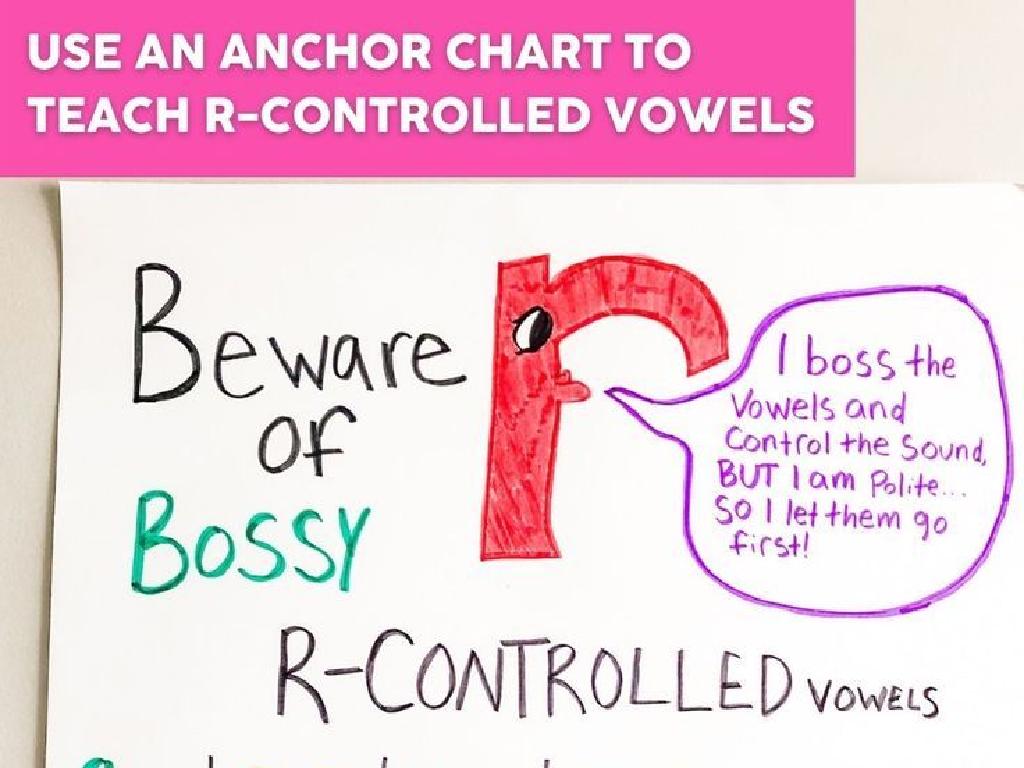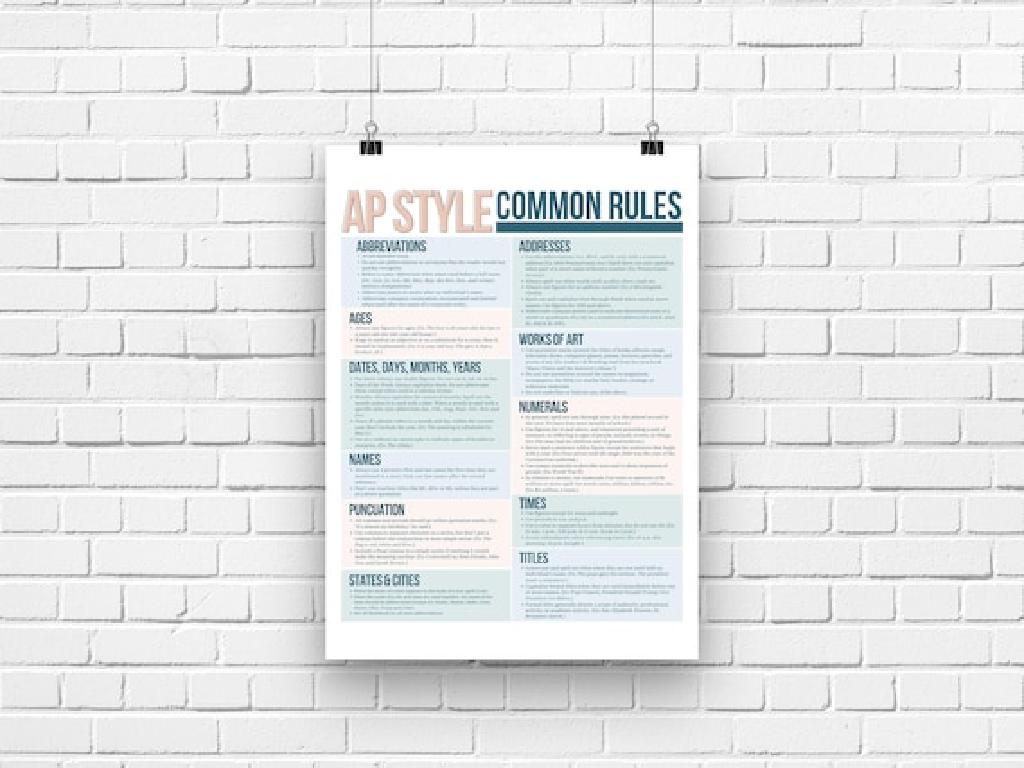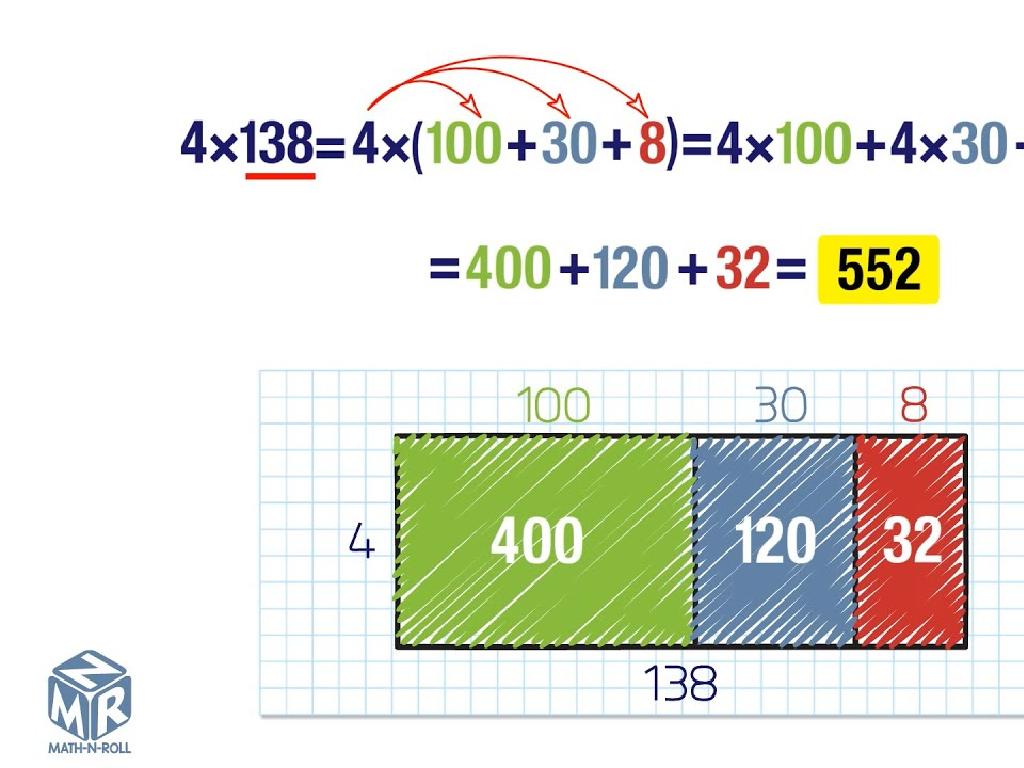Use Guide Words
Subject: Language arts
Grade: Seventh grade
Topic: 2
Please LOG IN to download the presentation. Access is available to registered users only.
View More Content
Navigating the Dictionary: Guide Words
– Understanding dictionary layout
– How dictionaries are organized for easy word search
– Defining guide words
– Words at the top of dictionary pages, aiding in finding words
– Guide words in research
– Using guide words to quickly locate information
– Their role in effective writing
– Guide words help in choosing precise language for writing
|
This slide introduces students to the practical use of a dictionary by understanding its structure and the concept of guide words. Guide words are located at the top of dictionary pages and are key to efficiently finding words. Emphasize the importance of guide words in both research and writing, as they help students to quickly locate information and choose the most accurate words for their work. Encourage students to practice using guide words by looking up unfamiliar words during reading assignments or when writing essays. This skill will enhance their vocabulary and improve their ability to express themselves clearly and effectively.
Exploring the Dictionary: A Guide to Words
– What is a dictionary?
– A resource listing language words with details
– Meanings and pronunciations
– Learn how words are used and spoken
– Etymology and usage tips
– Discover word origins and how to use them
– Alphabetical organization
– Words are sorted from A to Z for easy lookup
|
This slide introduces the dictionary as an essential tool for understanding language. It’s important to explain that a dictionary is more than just a word list; it’s a comprehensive guide that provides valuable information about words, including their meanings, how to pronounce them, their origins (etymology), and how to use them correctly in sentences (usage). Emphasize the alphabetical organization, which makes it easier to find words. Encourage students to use dictionaries to improve their vocabulary and understanding of the language. You can plan an activity where students look up words and share interesting findings about word origins or meanings.
Navigating the Dictionary: Guide Words
– What are guide words?
– Words at the top of dictionary pages
– Guide words’ location
– Located at the top of each page in a dictionary
– First and last words
– The first is the page’s first word, the second is the last
– Quick word location
– They help find words faster without reading the whole page
|
This slide introduces students to the concept of guide words, which are essential tools for efficiently using a dictionary. Guide words are located at the top of dictionary pages and are designed to help users find words quickly. The first guide word indicates the first word on the page, while the second guide word represents the last word on that page. By understanding and utilizing guide words, students can save time when searching for definitions and improve their vocabulary skills. Encourage students to practice by looking up words in a dictionary and identifying the guide words to reinforce their understanding.
Using Guide Words Effectively
– Understanding guide words
– Guide words at the top of dictionary pages help locate words
– ‘Harmony’ falls between ‘Harp’ and ‘Hatch’
– Example shows ‘Harmony’ is alphabetically ordered between the guide words
– Practice finding words
– Use guide words to determine which words appear on a dictionary page
– Think: ‘Catastrophe’ and ‘Cattle’
– What words come to mind that fit alphabetically between these guide words?
|
This slide introduces students to the concept of guide words and how they are used to find words in a dictionary. Guide words are found at the top of dictionary pages and represent the first and last words on that page, helping users navigate the dictionary more efficiently. By understanding alphabetical order, students can deduce that ‘Harmony’ would be found on a page with guide words ‘Harp’ and ‘Hatch’. For practice, students are asked to think of words that would logically fall between ‘Catastrophe’ and ‘Cattle’. This exercise helps reinforce their understanding of alphabetical order and guide words. Encourage students to share their answers and discuss any discrepancies in their findings.
Activity: Guide Word Scavenger Hunt
– Form teams for a dictionary hunt
– Each team gets specific guide words
– List words found between guide words
– Use the dictionary to find as many words as you can
– Team with most words wins a prize!
– Make sure the words are correctly within the guide word range
|
This class activity is designed to help students understand the use of guide words in a dictionary. Guide words are found at the top of dictionary pages and are used to help locate words. Split the class into small teams and assign each team a set of guide words. Their task is to find and list all the words that fall between these guide words in the dictionary. The team that comes up with the most correct words within the given time wins a small prize. This will encourage teamwork, enhance their vocabulary, and familiarize them with the dictionary layout. Possible variations of the activity could include finding words with specific parts of speech or words that fit a particular theme.
Conclusion & Homework: Guide Words Mastery
– Recap: Guide words help in dictionaries
– Homework: Find 10 guide word sets
– Look in any dictionary you have at home
– List three words between each set
– Choose words that would alphabetically fit
– Be ready to discuss your findings
|
As we wrap up today’s lesson, remember that guide words at the top of dictionary pages help us to quickly find words. For homework, students are to find 10 sets of guide words from any dictionary and list three words that would come between each set in alphabetical order. This exercise will reinforce their understanding of alphabetical order and how guide words function as a navigational tool. Encourage students to choose a variety of words and be prepared to share their lists in the next class, fostering a discussion on any interesting words they discovered or difficulties they encountered.






